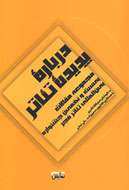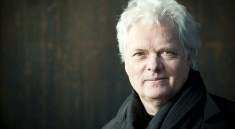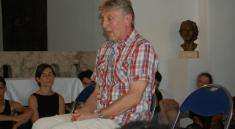TEHRAN, IRAN:  The 29th edition of the Fajr International Theatre Festival has just wrapped up this past February, with the majority of the awards going to Iran, Germany, Italy and Estonia. The international discussions continue though with the March publication of “About the Phenemenon of Theatre,” a book of critical essays and scholarly articles from this annual festival held in the Iranian capital city of Tehran. 
Released in three languages (English, Persian and French), about 2,000 copies of the book is published by Namayesh, a state subsidized theater magazine in Iran. The book (2022-12-15 15:41:15) is compiled by Nasrollah Ghaderi, in cooperation with Katayoon Hussein zadeh and Ali Najafi.
In an interview with the Iran Book News Agency, Katayoon Hussein zadeh says: “Most of the articles are about documentary theatre, political theatre, the formation of political theatre and its process. Every writer has presented his work according to the art in his country. The articleâs analytic information is incredible. Such a kind of book was not released in Iran so far.”
Moreover she said that the book will be distributed during the awarding ceremonies of the European Theater Prize (Premio Europa), which will be held in St. Petersburg in Russia, so that an international audience may appreciate the articles in this book.
The book is divided into English and French sections. The English section included such essays as:
- “Idioms of South Asian Theater” by Abhi Subedi;
- “At the Crossroads” by Andrzej Zurowski, about Polish theater;
- “The theatre and economics, the British experience” by John Elsom;
- “Chinese womenâs liberation road on the stage” by Dr. Zhu Ning;
- “Enchanted by the BRAVE festival” by Kalina Stefanova of Bulgaria;
- “Slovenian drama as the globalizationâs litmus test” by Kristof Jacek kozak;
- “The importance of being obedient” by the Finnish critic Matti Linnavuori;
- “Where is the emerging point in todayâs Swedish performing arts” by Margareta Sorenson;
- “The Barbican international theatre event in London” by Maria Shevtsova
- “The national theatre of Scotland, a theatre without walls” by Mark Brown
- “Theatre of revolution-history, theatre, document and life” by Petr Christov of the Czech Republic;
- “Two Lithuanian Hamlets: The metaphysics of ice and mirrors” by Ramune Marcinkeviciute;
- “Reorientalism,” a critical essay about the emergence of Arab-American theater voices, by Randy Gener of the USA;
- “Who will be the king or directorsâ merciless fight for power against playwright in the European theatre” by Sanja Nikcevic of Croatia;
- “National critics and the postmodern world: bridging the gap” by Savas Patsalidis of Greece;
- “The community sensitive theatre maker” by Tamas Jaszay;
- “Contemporary performance or whatever happened to the performative revolution” by Tomaz Toporisic;
- “The burden of existence” by Tomasz Milkowski of Poland;
- “The critical reception of Eastern/ Central European theater in Korea since 1989 by Yun-Cheol Kim of South Korea; and
- “European theatre 2000-2010” by Ian Herbert of the U.K.
During this yearâs event, the Fajr International Theatre Festival presented about 153 performances by Iranian and 3 international ensembles. Iranian performers put on stage some 137 works from different cities including Mashhad, Karaj, Kermanshah, Varamin, Sanandaj, Isfahan, Tabriz, Lahijan, Sari and Yazd.
Groups from Italy, the Czech Republic, Russia, Switzerland, China, Germany, Canada, South Korea, Greece, Poland and Estonia also participated in the festival. The 2011 Fajr International Theater Festival was held from February 5 to 20 in the Iranian provinces of Alborz, Tehran, Gilan, Golestan and North Khorasan.
Iran holds international Fajr film, theater, music and visual arts festivals on a yearly basis to mark the anniversary of the 1979 Islamic Revolution.





William Shakespeareâs “Romeo and Juliet” in modern drama (farce) in two acts, was staged in Tbilisi. The play started working on 15 September and after 6 months the was premiered in 2011 on February 17 in iliauniâs Theatre. The performance is full of plastic elements and despite not losing Shakespeareâs classic style. Decorated with artistic performance computer screens, transparent polyethylene, wet parks,sand and water, which is interesting to reflect Veronaâ cold environment.
Event Director - Guram Bregadze, choreography - Gia Margania,music â Zura Ingorokva
Article from âtheatre and lifeâ :
“Romeo and Juliet” is not a show, but esteturia scenic and beautiful in terms of visibility. There are all the main characters age actor. Every character c. Bregadze makes sharpen characteristic features of humor and characterization.
w - i - l l- i - a - m Shakespeare!
William Shakespeare!
Romeo and Juliet!
These words from the scene several times, loudly, sometimes with loud voice also stsenograpiul in words, scenic accents and exclamation mark control room and is no accident that Shakespeare is the play of this comic, klounadis elements saturated, humor and full of imagination but also a tragedy, but tragedy is not in general characters, for director and not directed by the creative team for which he is considered the opposite of artistic genre, but, in particular, for the main heroes.
The presentation is full of funny conventionality, which is characterized by shakespeareâs Theater (remember even an appointment stage of romeo and Juliet in lighter “caused by” lightening “of water nicknamed” Rain “or even conventionality of modern variants, such as Angels game joysticks and street martial arts Rewind to the start of the (?) â(such amazing voice is heard it on the stage) - Life is the game! The performance is full of grotesc klounadis and elements, but itâs not lost, the true essence of this work and for which it is staged on the stage - and true selfless quality, but the director g. Bregadze still reminds us and shows how ridiculous this becoming corrupt and depraved in every way in this world of sense because of the what results it brings.
Link of an article which was dedicated to this performance âromeo and Julietâ
http://www.georgiatoday.ge/article_details.php?id=8771&sms_ss=facebook&at_xt=4d67924fc61d330a%2C0